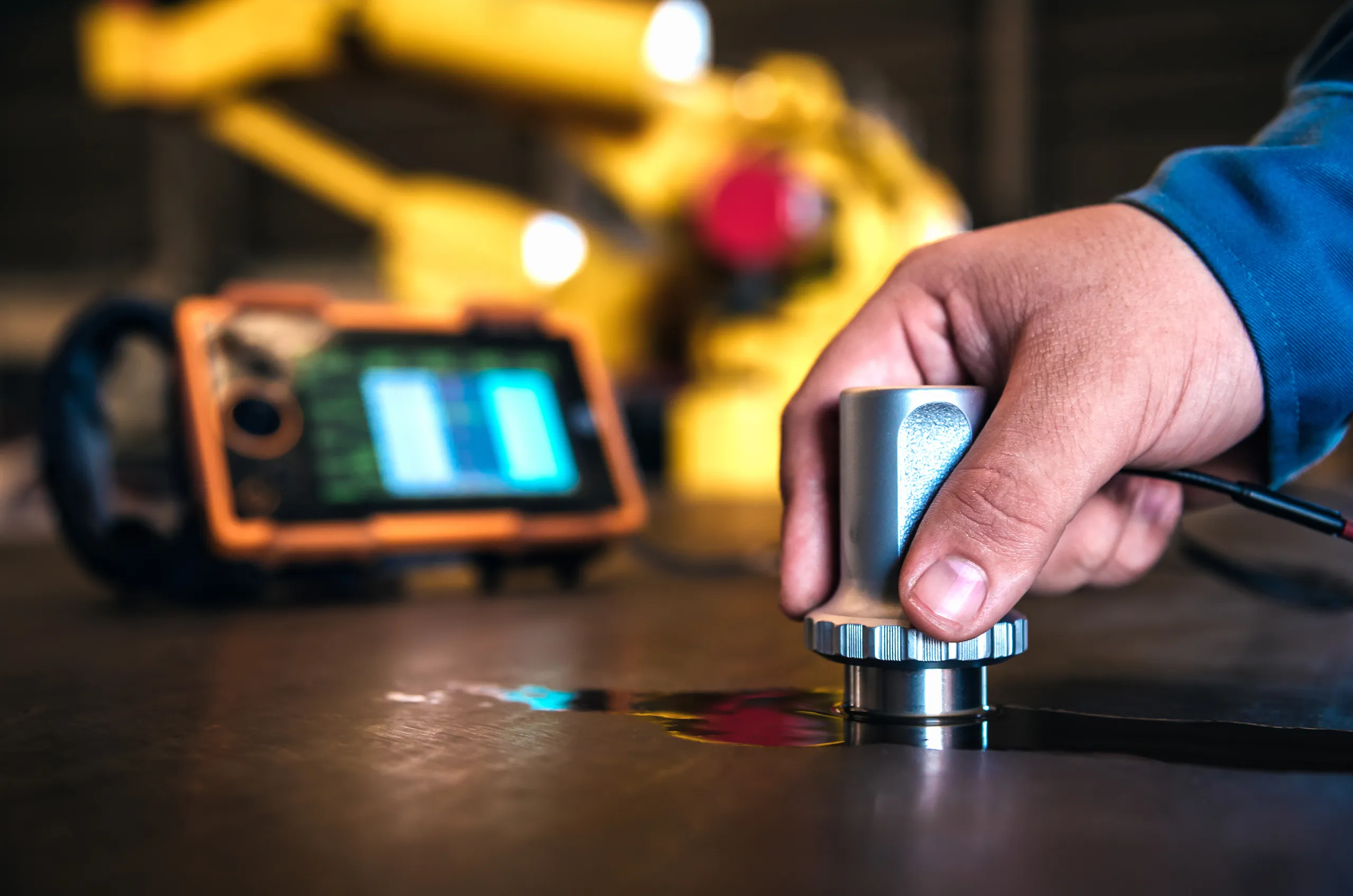GOST 21153 Magnetic Particle Non Destructive Testing of Automotive Forgings
The GOST 21153 standard provides a comprehensive framework for conducting magnetic particle non-destructive testing (NDT) on automotive forgings. This method is widely used in the automotive sector to ensure that critical components meet stringent quality and safety standards before being integrated into vehicles.
Magnetic Particle Testing (MPT) is particularly effective for detecting surface and near-surface defects such as cracks, folds, and seams in ferromagnetic materials like steel forgings. According to GOST 21153, the process involves applying a magnetic field to the forging while simultaneously introducing fine iron oxide particles onto its surface. The interaction between the magnetic flux and any discontinuities on the surface causes the particles to accumulate around these defects, making them visible.
The primary purpose of this testing is to identify potential flaws early in the manufacturing process, thereby preventing the production of defective parts that could lead to costly repairs or safety hazards. Automotive forgings often undergo MPT because they are used in critical components such as engine blocks, axles, and suspension systems where even small defects can have significant consequences.
Compliance with GOST 21153 is crucial for manufacturers aiming to meet international quality standards and ensure the reliability of their products. The standard outlines specific requirements regarding test procedures, equipment calibration, and interpretation of results. By adhering to these guidelines, labs like ours can provide accurate and reliable testing that meets both local and global market demands.
The testing process typically begins with thorough preparation of the forging, ensuring its cleanliness and appropriate surface condition. Once ready, a magnetic field is generated using either an electromagnet or permanent magnet. After applying the magnetic field, a suspension containing iron oxide particles and a wetting agent is applied to the part's surface. The interaction between the magnetic flux and any existing defects causes the particles to form visible indications.
Interpretation of these indications requires careful analysis by trained technicians who understand both the standards and the specific characteristics of automotive forgings. Proper technique during application, inspection time, and interpretation are critical for obtaining accurate results. Our lab employs highly skilled professionals equipped with state-of-the-art equipment to ensure precise testing according to GOST 21153.
By leveraging this method, we can help our clients maintain high levels of product quality while minimizing risks associated with undetected flaws in automotive components. This service plays a vital role in supporting the reliability and safety of vehicles across various segments, from passenger cars to commercial trucks.
In conclusion, GOST 21153 Magnetic Particle Non Destructive Testing of Automotive Forgings is essential for ensuring the integrity of critical automotive parts. Through rigorous adherence to this standard, we contribute significantly to enhancing overall product reliability and safety in the industry.
Customer Impact and Satisfaction
Implementing GOST 21153 Magnetic Particle Non Destructive Testing ensures that our customers receive reliable and high-quality testing results. This service has a profound impact on customer satisfaction by providing them with peace of mind knowing their forgings are free from defects before they reach the production line.
For quality managers, this means fewer rejections during procurement, reduced waste in manufacturing processes, and improved overall efficiency. Compliance officers benefit from having an independent third-party verification process that aligns with international standards, reducing potential legal risks associated with non-conformance.
R&D engineers gain valuable insights into the performance capabilities of new materials or designs through detailed defect analysis reports generated by our lab. Procurement teams also appreciate the consistency and accuracy provided by this standardized testing method which helps streamline their supplier evaluation processes.
Our commitment to excellence in GOST 21153 Magnetic Particle Non Destructive Testing is reflected not only in successful project completion rates but also in positive feedback from satisfied clients. We strive to exceed expectations every time, ensuring that each customer receives the best possible outcome for their testing needs.
Competitive Advantage and Market Impact
- Enhanced reputation: Adherence to GOST 21153 demonstrates our dedication to quality and reliability, enhancing our market position as a trusted partner in the automotive industry.
- Innovation support: Our expertise in this area supports continuous improvement efforts within client organizations, driving innovation forward through informed decision-making based on robust testing data.
- Cost savings: Early detection of defects via GOST 21153 reduces costs associated with post-manufacturing inspections and potential recalls due to unsafe products.
The ability to consistently meet stringent international standards gives us a competitive edge in attracting new business opportunities while retaining existing clients. By offering reliable, accurate tests conducted according to GOST 21153, we differentiate ourselves from competitors who may not adhere strictly to such rigorous protocols.
Our commitment to excellence in this field fosters long-term relationships with satisfied customers across the globe. Through ongoing education and training of our personnel, along with investment in advanced technology solutions, we remain at the forefront of automotive testing services.
Use Cases and Application Examples
Magnetic Particle Non-Destructive Testing (NDT) according to GOST 21153 is particularly useful for detecting surface and near-surface defects in ferromagnetic materials used in automotive forgings. Here are some specific use cases:
- Engine Blocks: Ensuring there are no cracks or other imperfections that could compromise engine performance.
- Axles and Suspension Systems: Identifying any flaws that might lead to failure under load conditions, ensuring safety during vehicle operation.
- Steering Components: Checking for defects in components responsible for steering accuracy, enhancing driving experience and road safety.
In addition to these examples, GOST 21153 MPT is also applicable to other critical components such as brake systems, transmission gears, and exhaust manifolds. The ability to identify even microscopic flaws early in the manufacturing process significantly reduces the likelihood of failure during use.
Our laboratory uses advanced equipment and highly skilled personnel to perform these tests rigorously following GOST 21153 standards. This ensures that all components are thoroughly examined, providing accurate results that can be relied upon by manufacturers and end users alike.





